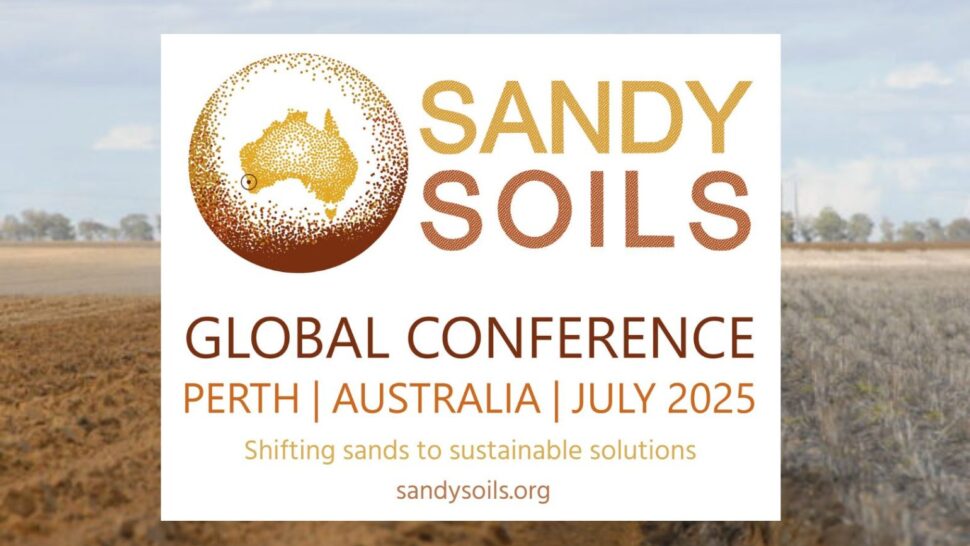The 2025 Global Conference on Sandy Soils will be held in Perth, Western Australia from 21 to 24 July. The event brings together leading soil scientists and researchers to explore the unique properties and challenges of sandy soils.
The conference theme ‘Shifting sands to sustainable solutions’ focuses on the challenges of managing and protecting the natural capital of sandy soils in the face of a changing climate.
Soil CRC researcher, Emeritus Professor Richard Bell from Murdoch University will be presenting research findings from his Soil CRC project, ‘New amendments for sandy soils’ (3.3.003). His presentation will focus on the effects of novel soil amendments on nutrient leaching in a sandy soil.
“Sands are highly prone to nutrient leaching due to low reactive surface area that is needed to retain water and nutrients,” Professor Bell said.
“Recurrent or heavy rainfall events have the potential to leach mobile nutrients, especially nitrogen, which can limit crop nutrition and may risk contaminating ground water supplies.
“My presentation will outline the work done by the Soil CRC in assessing the effect of compost, zeolite, spongolite and a water-absorbing polymer as amendments of water retention and nutrient leaching in an agricultural deep sand.”
The research was a collaboration between Murdoch University, Federation University, Primary Industries and Regions SA, the West Midlands Group and the Australian Organics Recycling Association. It brought together universities, farmer groups and industry partners to try to find ways to better manage sandy soils.
Sandy soils pose issues for soil productivity and have been a major focus of Soil CRC research. Joining Professor Bell at the Sandy Soils conference are Soil CRC PhD students Maria Then (Murdoch University), Tania Monir (Murdoch University), Stephen Lang (University of Adelaide) and James O’Connor (University of Western Australia).
Key conference sessions will address:
- Climate change and sandy landscapes
- Sand distribution and formation
- Monitoring, mapping and sensors
- Soil properties-analytical techniques
- Agricultural systems (irrigated and dryland)
- Natural systems
- Engineered systems
- Soil and water conservation
- Soil fertility
- Overcoming constraints to plant growth
There is also the opportunity to attend one of two field trips to explore innovations in farming, mining, and restoration, or inspect land uses, degradation processes and water quality along Perth’s southern coastal plain.
The conference is co-hosted by the Western Australia Department of Primary Industries & Regional Development and CSIRO.
For more information and to register, visit https://sandysoils.org/.
Can’t make it to the conference? Check out the Soil CRC’s research findings fact sheet and project resources at the links below to learn more about our ‘New amendments for sandy soils’ project.

